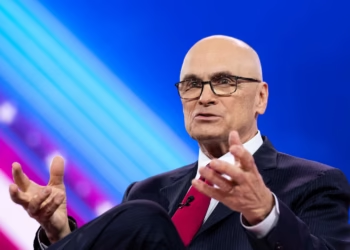BAGHDAD (Realist English). On March 23, former US Secretary of State Madeleine Albright passed away. She was 85 years old.
Former President Bill Clinton, under whom Albright headed the State Department, called her “a passionate force for freedom, democracy, and human rights.” And the current occupant of the White House, Joseph Biden, believes that she “was always a force for goodness, grace, and decency – and for freedom.”
And how do ordinary Iraqis who suffered from American sanctions remember Albright? Iraqi journalist Ahmed Tvaij shared his memories on the website of the Al Jazeera TV channel:
“For me as an Iraqi, however, the memory of Albright will forever be tainted by the stringent sanctions she helped place on my country at a time when it was already devastated by years of war. Millions of innocent Iraqis suffered terribly and hundreds of thousands died because of the sanctions which, in the end, achieved almost none of Washington’s policy objectives. As we remember Albright’s life and achievements, we must also remember those innocent Iraqi lives lost because of her policy decisions.
The most prominent memory of Albright that I have in my mind is from an interview she gave to CBS 60 Minutes in 1996.
In that now-iconic interview, veteran journalist Lesley Stahl questioned Albright – then the US ambassador to the United Nations – on the catastrophic effect the rigorous US sanctions imposed after Iraq’s invasion of Kuwait had on the Iraqi population.
“We have heard that half a million [Iraqi] children have died. I mean, that is more children than died in Hiroshima,” asked Stahl, “And, you know, is the price worth it?”
That’s what Albright said: “I think that is a very hard choice but the price, we think, the price is worth it.”
With this response, Albright showed that she sees innocent Iraqi children as nothing more than disposable fodder in a conflict between the US administration and the Iraqi leadership.
She demonstrated, with no room left for any doubt, that she had no humanity – that she cannot and shall never be described as “a force for goodness, grace, and decency.”


















